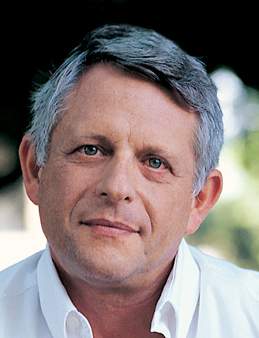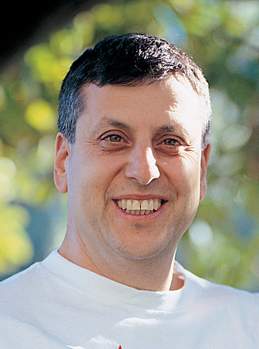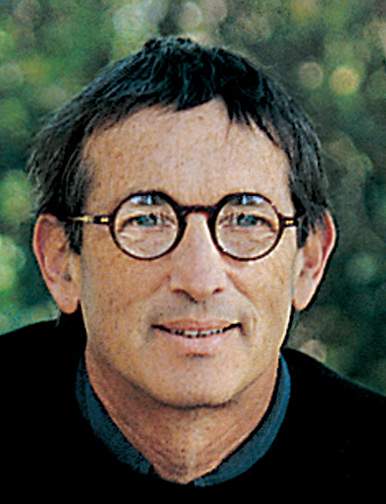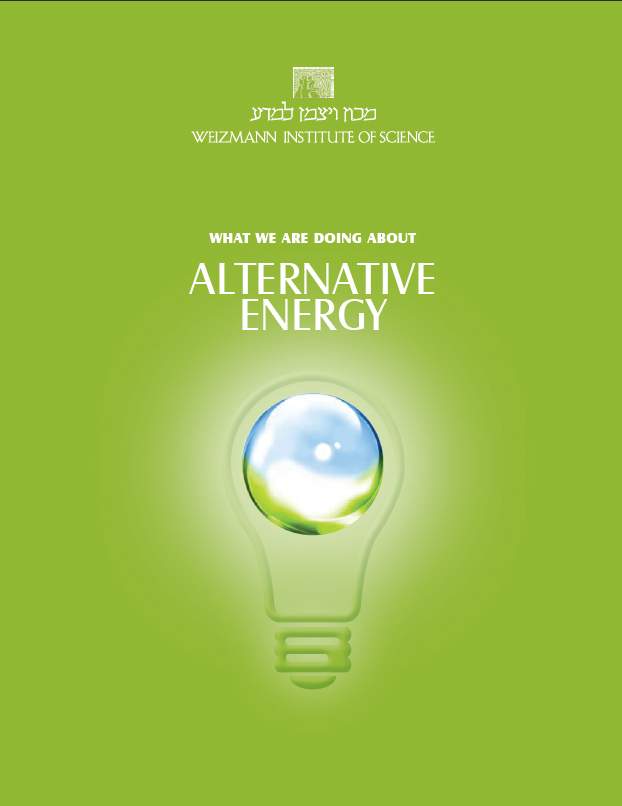


Creating environmentally friendly fuel from trash might be the ultimate recycling feat. When Prof. Ed Bayer of the Biological Chemistry Department began working on bacterial protein complexes that break down cellulose – the long, tough sugar-based molecules found in wood, plants and paper – his initial aim was to find ways to reduce the mountains of paper sitting in landfills. But the significance of this research for biofuel production has become evident in the last few years: The short-chained sugars churned out by these protein complexes are ideal for ethanol production.
In the 1980s, Bayer discovered how the cellulosome – the name he and his team gave to the bacterial machinery for digesting cellulose – operates. This living mechanism is actually a group of enzymes that work together chopping up the repeating sugar units of the cellulose’s long, insoluble chains. The result is simple sugar molecules (notably glucose) that the bacteria can then feast on.
But bacteria are frustratingly slow in breaking down cellulose – especially the cellulose in paper. Bayer has been devising improved cellulosomes that will hopefully turn paper and other waste cellulose into short sugar chains in a matter of days or even hours, rather than months or years. Recently, with support from AERI, he teamed up with Profs. Gideon Schreiber and Dan Tawfik of the Biological Chemistry Department, combining their different approaches: Schreiber’s research focuses on protein-protein interactions, altering the design of proteins to adjust their activity, while Tawfik uses the principles of natural selection to "evolve" proteins that are better adapted to specific tasks. So far, their designer cellulosomes can turn a lab dish full of finely shredded paper into simple sugar syrup in about a day.
Prof. Ed Bayer’s research is supported by Mr. and Mrs. Yossie Hollander, Israel. Prof. Bayer is the incumbent of the Maynard I. and Elaine Wishner Chair of Bio-Organic Chemistry.
Prof. Gideon Schreiber’s research is supported by the Clore Center for Biological Physics; the Helen and Milton A. Kimmelman Center for Biomolecular Structure and Assembly; and Mr. and Mrs. Yossie Hollander, Israel.
Prof. Dan Tawfik’s research is supported by the J & R Center for Scientific Research; the Jack Wolgin Prize for Scientific Excellence; Mr. and Mrs. Yossie Hollander, Israel; Mr. Rowland Schaefer, New York, NY; and the estate of Fannie Sherr, New York, NY.
In the 1980s, Bayer discovered how the cellulosome – the name he and his team gave to the bacterial machinery for digesting cellulose – operates. This living mechanism is actually a group of enzymes that work together chopping up the repeating sugar units of the cellulose’s long, insoluble chains. The result is simple sugar molecules (notably glucose) that the bacteria can then feast on.
But bacteria are frustratingly slow in breaking down cellulose – especially the cellulose in paper. Bayer has been devising improved cellulosomes that will hopefully turn paper and other waste cellulose into short sugar chains in a matter of days or even hours, rather than months or years. Recently, with support from AERI, he teamed up with Profs. Gideon Schreiber and Dan Tawfik of the Biological Chemistry Department, combining their different approaches: Schreiber’s research focuses on protein-protein interactions, altering the design of proteins to adjust their activity, while Tawfik uses the principles of natural selection to "evolve" proteins that are better adapted to specific tasks. So far, their designer cellulosomes can turn a lab dish full of finely shredded paper into simple sugar syrup in about a day.
Prof. Ed Bayer’s research is supported by Mr. and Mrs. Yossie Hollander, Israel. Prof. Bayer is the incumbent of the Maynard I. and Elaine Wishner Chair of Bio-Organic Chemistry.
Prof. Gideon Schreiber’s research is supported by the Clore Center for Biological Physics; the Helen and Milton A. Kimmelman Center for Biomolecular Structure and Assembly; and Mr. and Mrs. Yossie Hollander, Israel.
Prof. Dan Tawfik’s research is supported by the J & R Center for Scientific Research; the Jack Wolgin Prize for Scientific Excellence; Mr. and Mrs. Yossie Hollander, Israel; Mr. Rowland Schaefer, New York, NY; and the estate of Fannie Sherr, New York, NY.






















